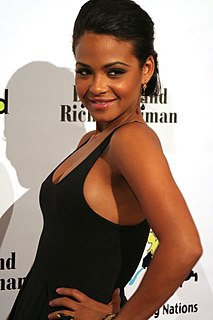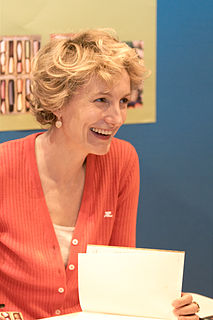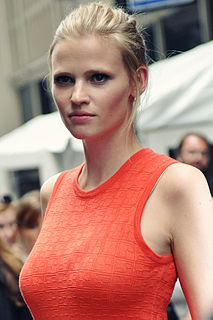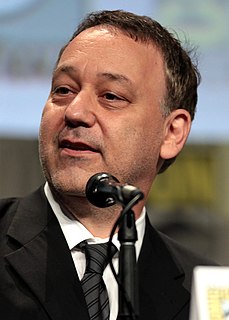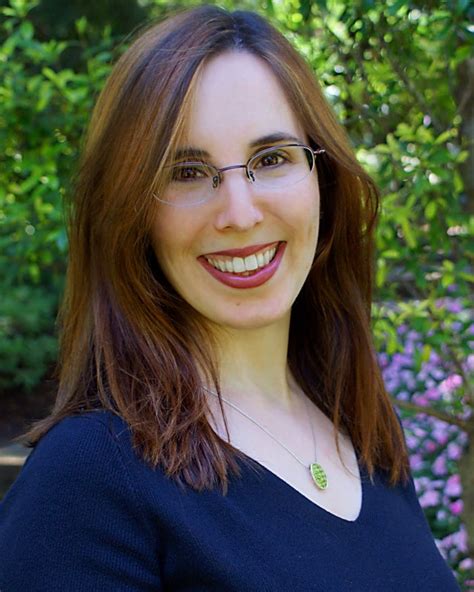A Quote by Claire Messud
My mother turned 40 in 1973. So in 1970 - when 'The Female Eunuch' came out and Ms. magazine was founded - my mom was 37 with two children, and she was just that little bit too old, and the circumstances of her life were set up in a certain way that for her to fulfill her ambitions and dreams, she would have had to break with the family.
Related Quotes
One thing I did have under my belt was, my mother lost her mother when she was 11. She mourned her mother her whole life and made my grandmother seem present even though I never met her. I couldn't imagine how my mom could go on but she did, she took care of us, she worked two jobs and had four children. She was such a good example of how to conduct oneself in a time of grief. When I lost my husband, I tried to model myself as much as I could on her.
... there had been the two little boys. Now they were gone, too. They loved her and called her and sent her e-mails and would still snuggle up to her to be petted when they were in the mood, but they were men, and though they would always be at the center of her life, she was no longer at the center of theirs.
The idea of the book ["The Japanese Lover"] came in a conversation that I had with a friend walking in the streets of New York. We were talking about our mothers, and I was telling her how old my mother was, and she was telling me about her mother. Her mother was Jewish, and she said that she was in a retirement home and that she had had a friend for 40 years that was a Japanese gardener. This person had been very important in my friend's upbringing.
My mother didn't feel sorry for herself, she was left with no child support, no alimony at a very young age, with a child to raise, a high school education and she just figured it out. She didn't complain, she didn't rely upon government, she relied upon her own skill set, her own self confidence, her own drive in moxie and her own duty to me and her and she relied upon her family and her faith.
She was sound asleep when he came to curl up next to her. She grunted. "Don't worry. I'm too drunk, I won't do anything," he murmered. As she had her back to him, he placed his nose on her neck and slid his arm underneath her to be as close to her as possible. Short strands of her hair tickled his nostrils. "Camille?" Was she asleep? Was she pretending? No answer either way. "I like being with you." A little smile. Was she dreaming? Was she asleep? Who knows.
We've worked together with Carine Roitfeld a lot; she's been a big supporter and helped me along with everything. Also, just the way she does her magazine - she's not afraid to do things differently or scared to put certain things in her magazine, a bit of controversy. She's a bit naughty. She likes sexy things.
In People magazine, Madonna said her life has been exhausting since she started her world tour. She said there isn't a second of her life that isn't taken up looking after her family or thinking of her show - her day is filled with problems of work and family. Someone should tell her, everyone else calls that, life.
She didn’t understand why it was happening,” he said. “I had to tell her she would die. Her social worker said I had to tell her. I had to tell her she would die, so I told her she was going to heaven. She asked if I would be there, and I said that I would not, not yet. But eventually, she said, and I promised that yes, of course, very soon. And I told her that in the meantime we had great family up there that would take care of her. And she asked me when I would be there, and I told her soon. Twenty-two years ago.
She writes that one of the moments that she felt most useful was when her mother had a headache, and she would stroke her head and rub her forehead. And I think Eleanor Roosevelt's entire life was dedicated to two things: (one) making it better for all people, people in trouble and in need, like her family.
In my earliest of years, my mother was a huge force in my life. She was for all intents and purposes, a single parent. My father had abandoned us. He was an alcoholic and a physical abuser. My mother lived through that tyranny and made her living as a domestic worker. She was uneducated but she brought high principles and decent values into our existence, and she set lofty goals for herself and for her children. We were forever inspired by her strength and by her resistance to racism and to fascism.


